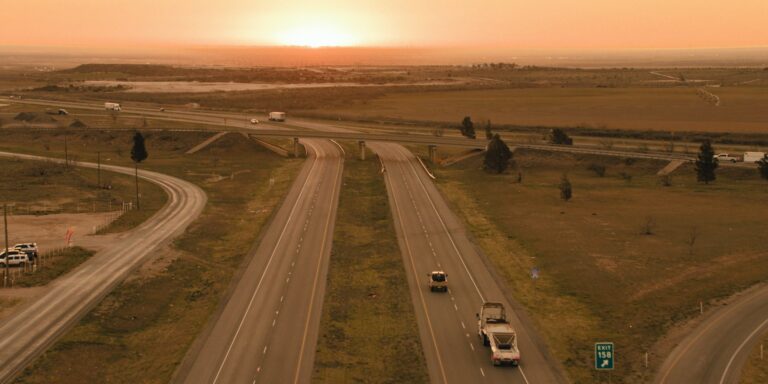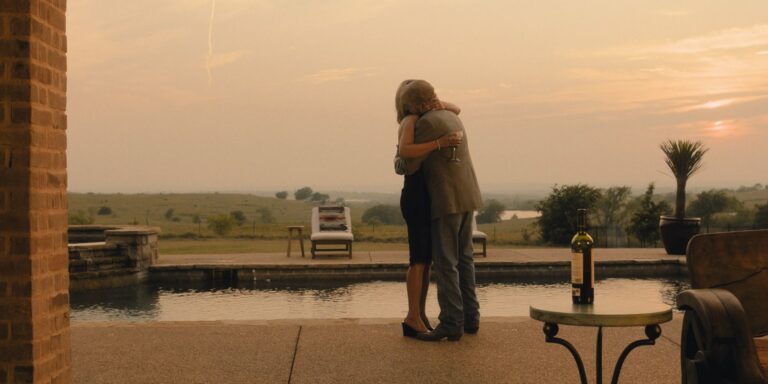- Meet the real language wranglers: landman’s dialect adventures
- Why accent authenticity matters in landman
- How landman’s actors gear up for dialect duty
- The butler method: what makes jerome butler tick?
- What’s at stake on season 2: more dialect fireworks
- So who’s behind the magic in the landman vocal booth?
- Try some of these “landman-isms” at home
- Watching for news and credits: the dialect “easter egg hunt”
- Final thoughts: the real accent heroes
Meet the real language wranglers: landman’s dialect adventures
Let’s kick things off on a drilling rig somewhere dusty, where a line of crunchy West Texas banter lands perfectly — and then, mid-sentence, a character switches gears into fast, fluent Spanish. There’s a sly grin, a snap in the voice, and nobody misses a beat. Welcome to Landman Season 2, where dialogue feels as tough and true as an oilman’s boots. If you think that sort of dialect dance happens without serious backroom magic, think again. The cast’s accents are so sharp you could cut pipeline with them, and it’s no accident — they trained for every syllable.
But who cracks the code behind that voice wizardry? You might think it’s luck or regional talent, but actually, it’s the result of actors working closely with dialect coaches. And while Landman’s dialect bench has drawn some industry all-stars, there’s one name in the world of accent wrangling that pops onto everyone’s radar: Jerome Butler. While he hasn’t been listed as an official Landman staff member — at least as of November 2025 — his approach colors the whole conversation about dialect authenticity on the small screen.
So, strap in. We’re drilling deep into the world of dialect precision. We’ll look at what the coaches bring, how actors prep for Texan twang, and why Spanish-inflected dialogue gives this show such zing.
Why accent authenticity matters in landman
You already know that Landman isn’t just another “y’all and howdy, partner!” TV show. It’s the wild mix of Midland drawl, bilingual borderland slang, sharp legalese, and oilfield jargon that gives the dialogue its punch. The show plants itself right in the heart of the Permian Basin: think Fort Worth boardrooms, dusty rig corners, fancy ranch kitchens, and the not-always-so-cozy backrooms where English and Spanish trade places as quickly as secrets. You hear it in every scene.
Now, getting this vocal jumble right actually requires real science. For one, West Texas isn’t “just Southern.” It’s got that crackling rhythm, unique vowels, a bit of prairie flatness, and — if you listen closely — the sort of “WH” sound in what, when, where, and why that only crops up below the Red River. Slide over to the Medina family or Gallino’s side of the story, and suddenly, English relaxes into a musical Spanish cadence or slides smoothly into full-on Español. A solid dialect coach is behind the magic, shaping every beat so it rings true.
How landman’s actors gear up for dialect duty
There’s zero room for lazy accents or regional confusion in Landman. Absolutely none. Taylor Sheridan, the showrunner, has built a whole universe on authentic detail, right down to the way oilfield slang lands — words like “toolpusher,” “worm,” “blowout,” and even “ginsel” fly across the screen. But it’s not just the lingo that sets the tone. It’s the sound, the syntax, the rhythm of West Texas.
So, how does the cast get there? Let’s break it down:
- Ali Larter (Angela): Outspoken about her dialect prep, Larter revealed in a pointed New York Post feature that she worked hand in hand with renowned dialect coach Jessica Drake. She even gave a little masterclass on the “breathy WH” sound common in the region. (Try it: “what” with a puff of West Texas wind at the front. You’ll feel it in your chest.)
- Michelle Randolph (Ainsley): She spent hours with a dialect pro for Season 1, per a Decider interview. Randolph wanted her accent to reflect a modern young Texan, not a parody. Her prep included plenty of script scoring, repetition, and getting the local rhythm just right.
- Paulina Chávez (Ariana Medina): Chávez, who already carries Texas roots, brought in a genuine Spanish-inflected English flair for the Medina family arc. No faked “telenovela” accent here — the sound is tight to the region and jumps nimbly between languages. Her craft shows, especially in scenes where Spanish slides in without missing the West Texas snap.
- Andy Garcia (Gallino): Garcia’s cartel boss performance draws power from bilingual credibility. His dialogue lands with that perfect mix of danger and charm. Industry buzz highlights the work it takes to make code-switching — those slick back-and-forth language pivots — feel completely natural.
It’s no wonder dialect coaches sit high on the show’s production food chain. Even more interesting, early Landman coverage ties the bulk of dialect work, at least for Larter, to Jessica Drake. But hold on — let’s widen the lens for a second.
The butler method: what makes jerome butler tick?
You want to know how top actors sharpen their speech on a show like this? Enter Jerome Butler. While he hasn’t gotten a direct staff credit on Landman, the talk around his method is everywhere. If you want real insight into accent mastery, he’s the benchmark.
Butler has worked with everyone. We’re talking Oscar winners — Ellen Burstyn, Chiwetel Ejiofor, Tom Hardy. He’s Juilliard-trained, runs the much-loved Dialect Coaches Corner, and boasts testimonials from giants like Jonathan Pryce. Google his own NEA mini-doc and you’ll see: Butler aims to get actors so fluent in their target accent that they don’t even have to think about it.
Here’s what Butler brings to the table:
- Audio immersion: He finds real people — Midland oil execs, Odessa grocery clerks, ranch hands, you name it — and builds audio libraries that actors can mimic. No ivory tower here, just hard-edged, grainy, authentic sound bites.
- Bespoke dialect plans: Every actor gets a step-by-step guide. Butler maps how a performer speaks, exactly which vowels or consonants need to shift, where energy and breath should go, and then crafts drills that attack each weak spot.
- Script scoring: Lines aren’t just memorized. They’re color-coded, broken into beats, mapped out for accent peaks and valleys. Do it wrong, the audience hears it. Do it right, the words slip seamlessly into character.
- Physical prompts: Butler is big on kinesthetics. Need that oilfield gravel in your voice? Block a tennis ball under one cheekbone, maybe, or pace the room with a straw in your mouth as you recite “what/where/when/why” until the West Texas lilt becomes muscle memory.
- True bilingual coaching: For Spanish-inflected English or full-on code-switching, Butler emphasizes rhythm and timing. He keeps English clear and intact, with just enough Spanish flavor to make it sound organic, never forced.
So, why does Butler matter, even if he hasn’t (yet) worked on Landman officially? His toolkit maps exactly to the show’s needs. Landman is a hard test for dialect pros. Butler’s drills and plans would slip into any coaching session on that set and improve the results.
What’s at stake on season 2: more dialect fireworks
Now, let’s talk stakes. Season 2, set to drop November 16, 2025, on Paramount+, doubles down on character. According to reports from People and EW, the cast returns for an even deeper slice of Texas. Billy Bob Thornton, Demi Moore, Ali Larter, Andy Garcia — plus new heavyweight Sam Elliott — promise to bring voices as layered as the oilfields themselves.
The production didn’t hide from Texas, either. They shot in and around real Fort Worth landmarks — the Petroleum Club, Rivercrest Country Club, TCU, and even the American Association of Professional Landmen offices. The result? Extras and day players brought their own local twang to set, upping the authenticity.
If you’re looking for more bilingual fireworks, you won’t be disappointed. Ariana’s family and Gallino’s cartel crew both keep the Spanglish lyrics flowing. You can bet dialect coaches worked out every bridge and switch in those lines. Confirmation from cast interviews shows this wasn’t left to chance.
And, as the show continues, you’ll spot the difference: true West Texas isn’t “just” Southern. The vowels flatten distinctively, but the rhythm is efficient, practical — made for finishing a deal or closing a gate as much as telling a joke.
So who’s behind the magic in the landman vocal booth?
Let’s clear this up: as of November 2025, Jessica Drake holds the confirmed spot as Landman’s dialect czar (at least for Larter and possibly others). Drake has made her mark, but don’t be surprised if other names surface once the full Season 2 credits roll. Paramount+ is tight-lipped about the entire dialect team. So, if Jerome Butler happens to show up in the end credits — grab your popcorn, because we’ll have plenty more to say.
For now, there’s every reason to spotlight Butler’s techniques, since his methods align so tightly with the challenges Landman actors face. If you want dialect wizardry from the all-star playbook, he’s your first phone call.
Try some of these “landman-isms” at home
Feel like getting a taste for yourself? Here are some hallmarks you can listen for in the show, or test out the next time you feel like confusing your friends at a barbecue:
- The “WH” pop: Whisper “what” as if you’re exhaling on the first beat.
- Oilfield codes: Learn to say “toolpusher” or “ginsel” like you’ve worked all week on a rig.
- Hybrid cadence: Try flipping a sentence from English to Spanish and back, keeping pace without stalling out on the switch.
- Bilingual bravado: Finish a heated argument with a quick “¿me entiendes?” for punctuation.
Actors didn’t just memorize these tricks. They drilled, sweated, and — no surprise — sometimes probably laughed at themselves between takes.
Watching for news and credits: the dialect “easter egg hunt”
One more thing before you binge-watch the new season: keep your eye on the credits rolling at the end of each episode. As of premiere weekend, there’s still a bit of mystery around who exactly carried the dialect mantle for every Landman character this time around. Industry sleuths and fans alike are scanning for that elusive “Dialect Coach” listing.
If Butler’s name turns up, it’s sure to spark buzz — his followers love to spot his handiwork, and his presence means extra polish. Until then, Jessica Drake wears the dialect crown, and the actors she’s coached have absolutely raised the bar.
Final thoughts: the real accent heroes
In Landman’s world, dialogue does heavy lifting. Each West Texas snap, each clever turn of Spanglish, does more than fill dead air. It sets the tone, stakes out identity, sometimes starts fights, and often — brilliantly — stirs up new storylines. Credit the cast, but save a hat-tip for the language wranglers: the dialect coaches who turn everyday words into living, breathing Texas drama.
Next time someone nails a scene with just the right lilt, you’ll know exactly who’s helped guide that twang or walk that linguistic tightrope. And who knows, you might even find yourself talking a little bit more like a Landman. Happy accent hunting, y’all.




